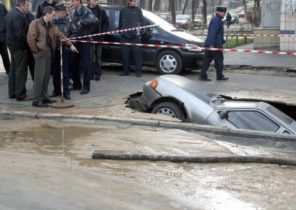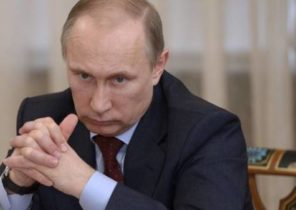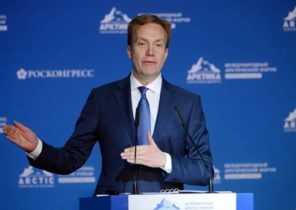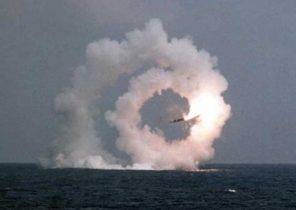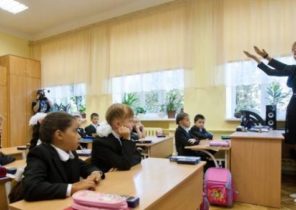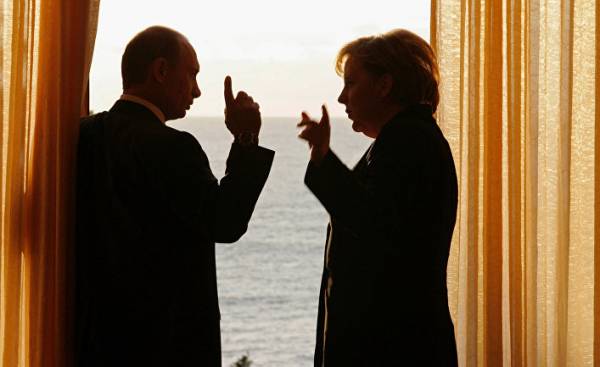
When Angela Merkel and Vladimir Putin last met at the White house was Barack Obama. Now the German Chancellor and the Russian President will discuss his complex relationship in the era of Donald trump.
Upcoming this week for the first two years, the visit of Ms. Merkel in Russia for a meeting with Mr. Putin promises to seriously weaken the tension between Berlin and Moscow. Two leaders who should meet on Tuesday, remain deeply divided on a range of issues — from the Syrian war and the bloodshed in Ukraine to the alleged interference of the Kremlin in Western European politics.
However, despite this, Mr. Putin and Ms. Merkel are set to renew their long-standing personal contacts. It is also possible that they want to understand how the arrival of Donald trump in the White house changed the global political balance.
Both capitals deny the possibility that this meeting could provide a breakthrough in the issue of Ukrainian conflict, because of which the relations between Germany and Russia is now worse than ever since the cold war. The Commissioner of the German government for cooperation with Russia Gernot Erler (Gernot Erler) said: “I see no reason for optimism in this area. Mr. Putin will be very confident in their position, and the Chancellor won’t want to back down from its”.
European diplomats discussing the possibility of a new meeting in the “Normandy format” in which the leaders of Russia, Ukraine, France and Germany will attempt to stabilise Eastern Ukraine. The last such meeting took place in Berlin last October, and the situation it was tense.
Few people hopes that negotiations of this kind will immediately end the conflict, which claimed, in 2014, about 10,000 lives. However, EU policies and politics of Germany assumes that the communication channels need to remain open. “We remain extremely critical of the annexation of Crimea and the conflict in Eastern Ukraine. However, we want to maintain dialogue with Moscow. Therefore, the Chancellor continues to talk with Mr. Putin,” — emphasizes Mr. Erler.
A Russian expert at the German society for foreign policy Stefan Meister (Stefan Meister) have suggested that Ms. Merkel may be able to soften the position of Mr. Putin in Ukraine and warned that his overly belligerent attitude may encourage Mr. trump to a “dangerous reactions” — for example, to intensify military operations in Syria.
In Moscow there are also rumors that Mr. Putin not yet met the new American President, is interested in the views of Ms. Merkel, who visited Washington in March, and then took in Berlin, the influential daughter trump Ivanka. “Nezavisimaya Gazeta” wrote on the days that Mr. Putin wants to “experience first hand”.
However, as one German official, “even if the exchange of information about Mr. trump is interested in Russia, Germany not interested in it”.
The Kremlin originally hoped that Mr. trump speaks approvingly of Mr. Putin during the election campaign, will be friendlier attitude to Russia. However, the hopes of Moscow at the President-the billionaire vanished after the resignation of Pro-Moscow configured first counselor Mr. trump safety Michael Flynn (as Michael Flynn). In the end, in the administration of Mr. trump’s the first role of the nominated figures are skeptical about Moscow, such as the successor to Mr. Flynn G. R. McMaster (HR McMaster).
“The Kremlin is a little puzzled with what is happening in the world since then, as the man the American press portrays our puppet, came to the White house,” — says the Chairman of the Council on foreign and defense policy Fyodor Lukyanov.
German and Russian officials also said that the two leaders are due to discuss energy and economic ties and the upcoming summit of “Big twenty”, which will be held in July in Hamburg.
Ms. Merkel will seek to persuade Mr. Putin that the EU’s stronger than he thinks, and it is able to keep a United front in the question on imposed on Moscow in economic sanctions. Likely, it will point to the few established in Western Europe Pro-European attitudes and the failures of those critical of the European Union of the nationalist forces, which the Kremlin often supports.
Although Britain is still moving to Bracito, the French presidential election is likely to win the Pro-European customized Emmanuel macron (Emmanuel Macron), not the far-right marine Le Pen (Marine Le Pen). In Germany, where in September should pass parliamentary elections, eurosceptic and Pro-Russian “Alternative for Germany” is losing, judging by the polls, the popularity.
Ms. Merkel also knows that in Germany many, mindful of the alleged Kremlin’s meddling in U.S. elections, fear of a similar intervention in the September elections. However, it is unknown whether the Chancellor to raise this issue at the meeting with Mr. Putin. In addition, German intelligence agencies claim that Russia — with high probability — was behind the incident in 2015 in the Bundestag computer hacking, which was stolen a large amount of information.
As usual, the language of communication will not be a problem: Ms. Merkel, who grew up in the former East Germany, speaks fluent Russian and Mr. Putin, who served in the Communist era KGB officer in Dresden, since he is fluent in German. But, nevertheless, the meeting in the black sea resort city of Sochi will hardly be able to cover the wide political chasm between liberal and authoritarian Chancellor of the Kremlin leader.
